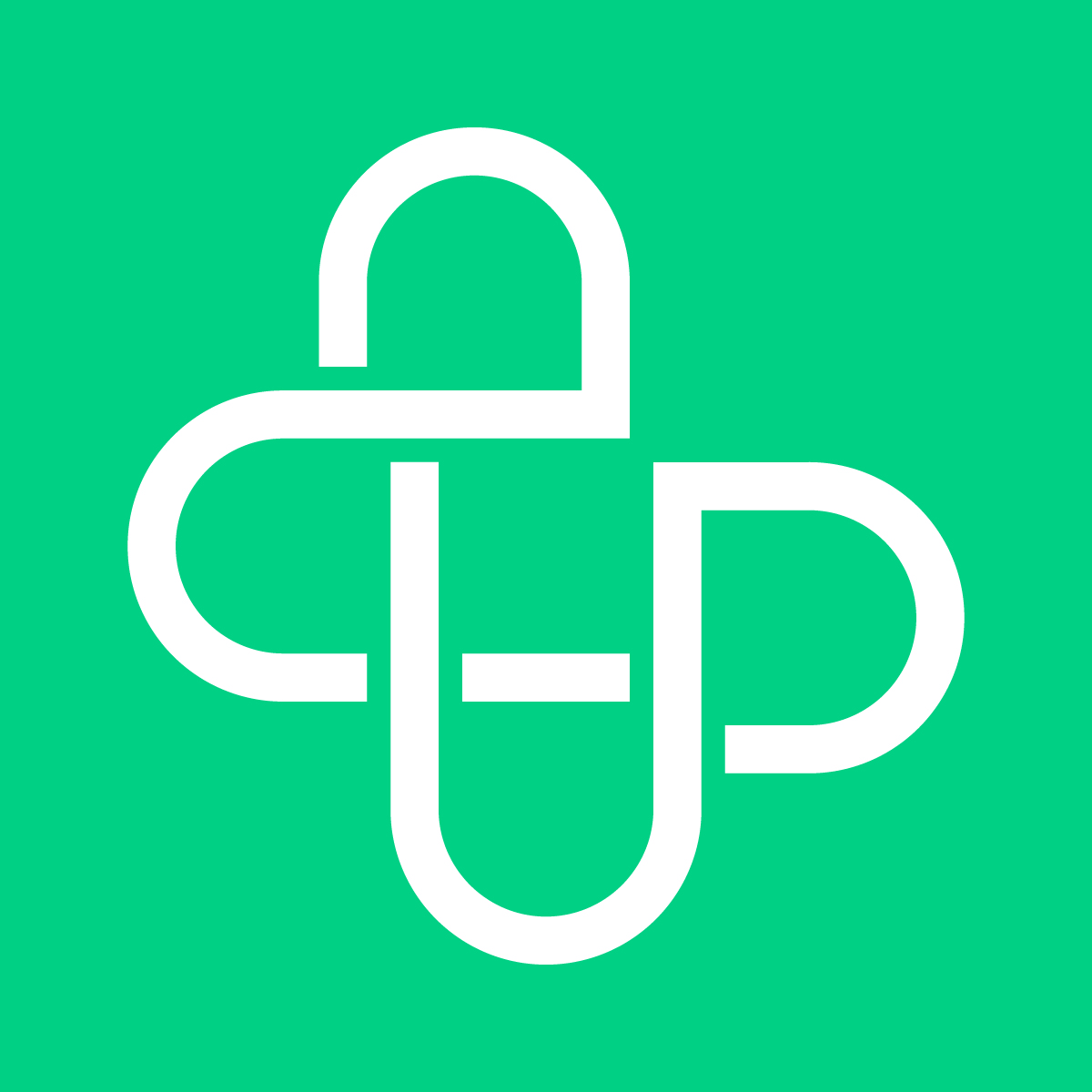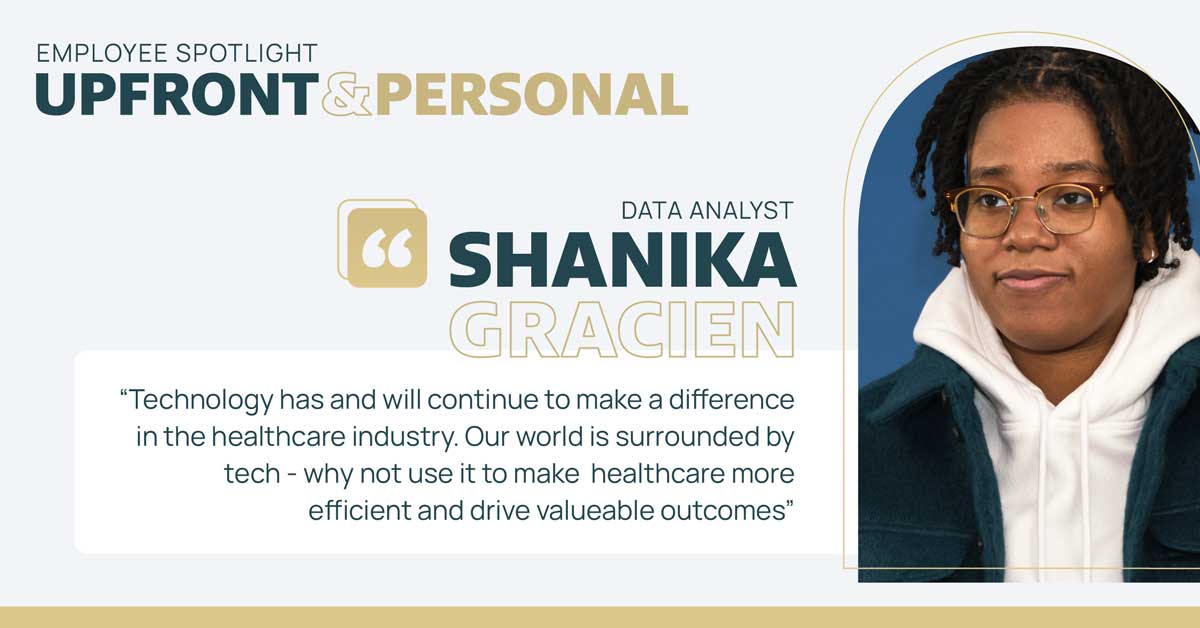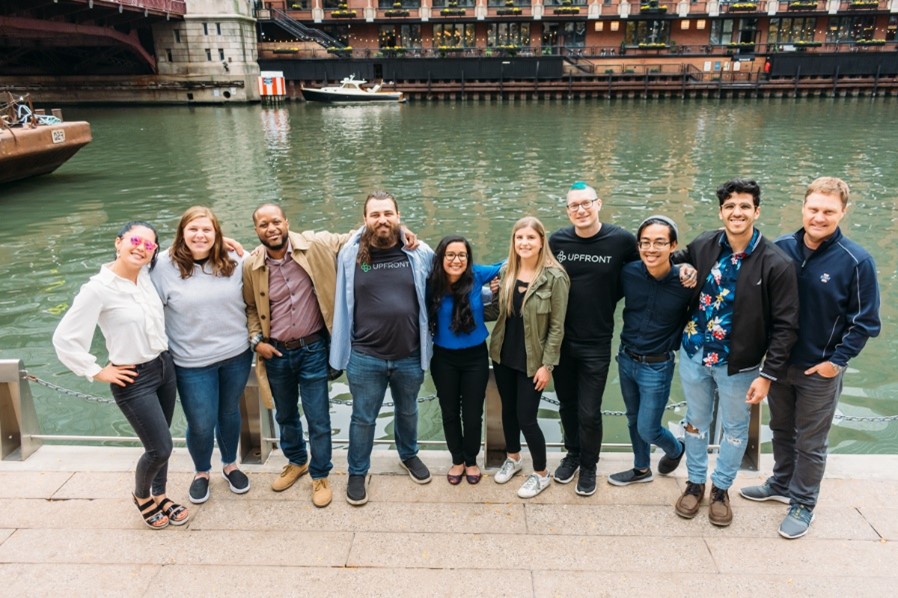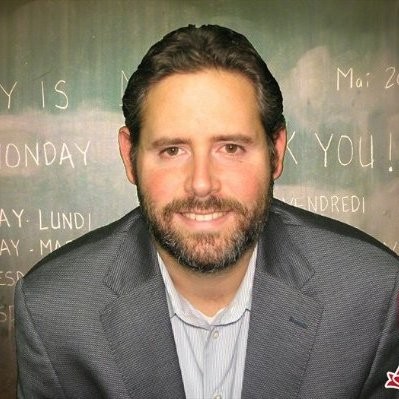In just a few years, Upfront has grown from an emerging health tech startup into a thriving organization transforming the future of healthcare. Yet, we couldn’t possibly achieve innovation without the passion and vision of our team members. Read our employee spotlight series “Upfront & Personal” to meet Upfront employees, gain insights into the healthcare landscape, and learn about the incredible work our team is doing — inside and outside of the company.
Helping people has always been in Shanika Gracien’s DNA.
So, it wasn’t a surprise that the daughter of Haitian immigrants would choose to follow an enviable path into healthcare. But after studying to become a physician’s assistant in college, and interning for various clinics and hospitals, Shanika encountered one, slight problem: “I realized I didn’t like the sight of blood,” she laughs. Luckily, by the time Shanika reached her senior year, she had been introduced to the field of healthcare technology — and decided to go all in. Here’s how Shanika pivoted her career journey to combine her love of helping others with a role in tech to advance patient health from behind the scenes, as a Data Analyst at Upfront.
Tell me about your role as a Data Analyst. What are your current responsibilities?
Each month, I am responsible for generating customer reports to update the Client Strategy Team. Our main focus is building out visual dashboards that focus on showcasing data on engagement, outreaches, outcomes, and other key metrics that tell the best stories for our clients. We want the data to be standardized; to show that even though one client’s data may be a little different than another client, we can easily show how patients are engaging with the communications delivered to them.
For example, we can show how many points of outreach we’ve delivered, how many distinct patients are engaging, or how they’re responding to survey questionnaires. We also work on showcasing our data in a visual way to provide various teams at Upfront with access to a high-level view of activities, so that they can go back to the clients with the data, and develop strategic solutions to meet their needs.
Harnessing health data can be complex. What are the challenges of using data to demonstrate strategy effectiveness and outcomes?
Definitely data quality and availability. It’s becoming more and more standardized, but not all of our clients provide data in the same way. Picking out the specific metrics we want to show in our dashboard is critical. For visit adherence, we might want to show the total number of outreaches, the number of patients confirmed, how many rescheduled, and other data points. Then helping our Client Strategy Team communicate the data to clients to tell the right story. Seeing our colleagues get excited about metrics affirms the work that we do.
You originally studied to work on the clinical side of healthcare. What led you to pursue a career in data science?
When I was studying Public Health, I was researching careers and industries, and I learned about health tech. At that time, I didn’t know you could marry healthcare and technology. My parents are from Haiti so it was expected that I would become a doctor or a lawyer. I didn’t have anyone in the industry to show me where to go, so I began reaching out to people cold on LinkedIn, and I was told to work on developing my tech skills. The community was really great.
“I know that technology has and will continue to make a difference in the healthcare industry. Our world is surrounded by tech — why not use it to make healthcare more efficient and drive valuable outcomes?”
Shanika Gracien, Upfront Data Analyst
What appealed to you most about applying your skills in the healthcare industry?
I’ve always been an empathetic person and wanted to care for people. As a kid, I was just very helpful. My parents were working long hours and we spent a lot of time with my grandparents, so being there I just wanted to help. It was a way to make people feel better, and to me, that was healthcare in a nutshell. Growing up Haitian American, our parents struggled to get here and they just wanted to give us the best life they could. But we often didn’t go to the doctor’s office, didn’t have the best habits, ate unhealthy food, and so it influenced my decision to go into healthcare and also influenced better lifestyle behaviors and decisions.
Pursuing a job in data science was really just a way to get me into healthcare. I know that technology has and will continue to make a difference in the healthcare industry. Our world is surrounded by tech — why not use it to make healthcare more efficient and drive valuable outcomes? Getting patients to engage, make appointments, or click on microsites, makes a big difference. It can lead people to the care they need, and put them on a path to get healthier.
How does your work connect to Upfront’s goal to create positive health outcomes?
It’s all of what we do. We’re building the right solutions for our clients and producing something beneficial, whether that’s getting patients to the appointments, scheduling them for care, or closing care gaps. It’s refreshing to work for an organization that really cares about patients. Everyone here understands the sheer importance of our work. My work just provides the details, and proves our success through the data.
What inspires you to continue building your career at Upfront?
Just the drive to make a small difference in patients’ health. In the time I’ve worked here, I’ve been able to make a difference in how our clients see our outcomes through the conversations around the data and the story that we have. Going back to the PA experience, I realized I don’t have to be in front of patients to make progress. I can be on the backend, making a difference with my team. It feels good knowing we are helping.
Outside of that, I really credit the team: Lindsay, Anna, Clare, Rob, the entire Data Engineers and Analyst teams. Everyone has been so open to teaching and helping me, and it makes me want to continue to do the work that we do. I don’t know if it’s the Haitian kid in me, but I also want to demonstrate how the help they’ve given me is making a difference in my abilities and work ethic.
Which of Upfront’s seven core values resonates with you most? Why?
Grit. Definitely grit. I had to have it to get here. I am all about learning and continuous improvement. I just figure it out and go after it.
Outside of solving one of healthcare’s greatest technology challenges, how do you like to wind down outside of the office?
I like going to festivals, visiting art galleries, and doing artsy things like photography. I have this new interest in going to the movies, like actually sitting in the theater and taking in the whole experience, like we used to do before the pandemic. And I love anything music-related.



